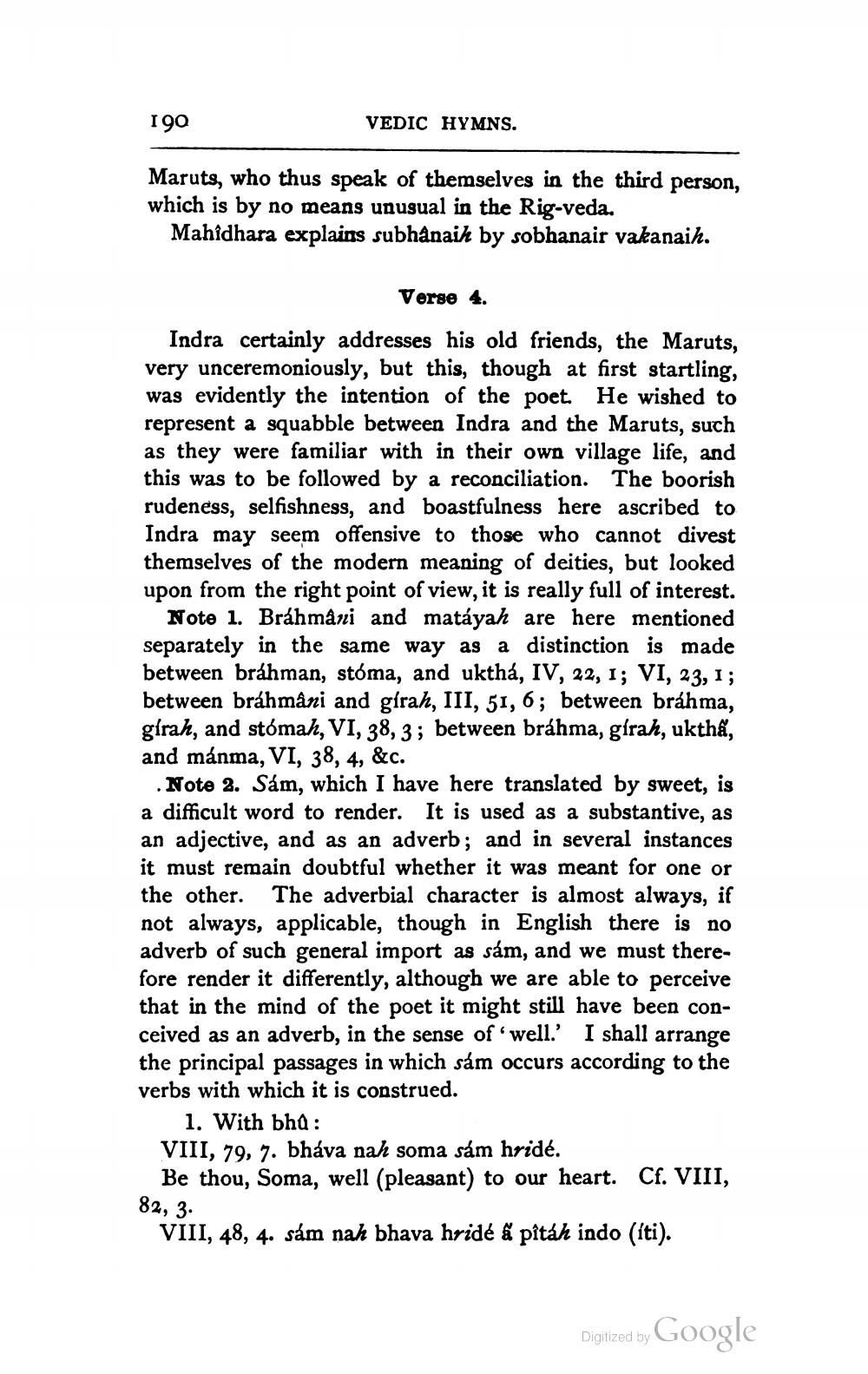________________
190
VEDIC HYMNS.
Maruts, who thus speak of themselves in the third person, which is by no means unusual in the Rig-veda.
Mahîdhara explains subhanaih by sobhanair vakanaih.
Verse 4. Indra certainly addresses his old friends, the Maruts, very unceremoniously, but this, though at first startling, was evidently the intention of the poet. He wished to represent a squabble between Indra and the Maruts, such as they were familiar with in their own village life, and this was to be followed by a reconciliation. The boorish rudeness, selfishness, and boastfulness here ascribed to Indra may seem offensive to those who cannot divest themselves of the modern meaning of deities, but looked upon from the right point of view, it is really full of interest.
Note 1. Brahmâni and matayah are here mentioned separately in the same way as a distinction is made between brahman, stóma, and ukthá, IV, 22, 1; VI, 23, 1; between brahmâni and girah, III, 51, 6; between brahma, girah, and stómah, VI, 38, 3; between bráhma, girah, uktha, and mánma, VI, 38, 4, &c.
Note 2. Sám, which I have here translated by sweet, is a difficult word to render. It is used as a substantive, as an adjective, and as an adverb; and in several instances it must remain doubtful whether it was meant for one or the other. The adverbial character is almost always, if not always, applicable, though in English there is no adverb of such general import as sám, and we must therefore render it differently, although we are able to perceive that in the mind of the poet it might still have been conceived as an adverb, in the sense of well.' I shall arrange the principal passages in which sám occurs according to the verbs with which it is construed.
1. With bha : VIII, 79, 7. bháva nah soma sám hridé.
Be thou, Soma, well (pleasant) to our heart. Cf. VIII, 82, 3.
VIII, 48, 4. sám nah bhava hridé ã pîtáh indo (sti).
Digitized by
Digized by Google




